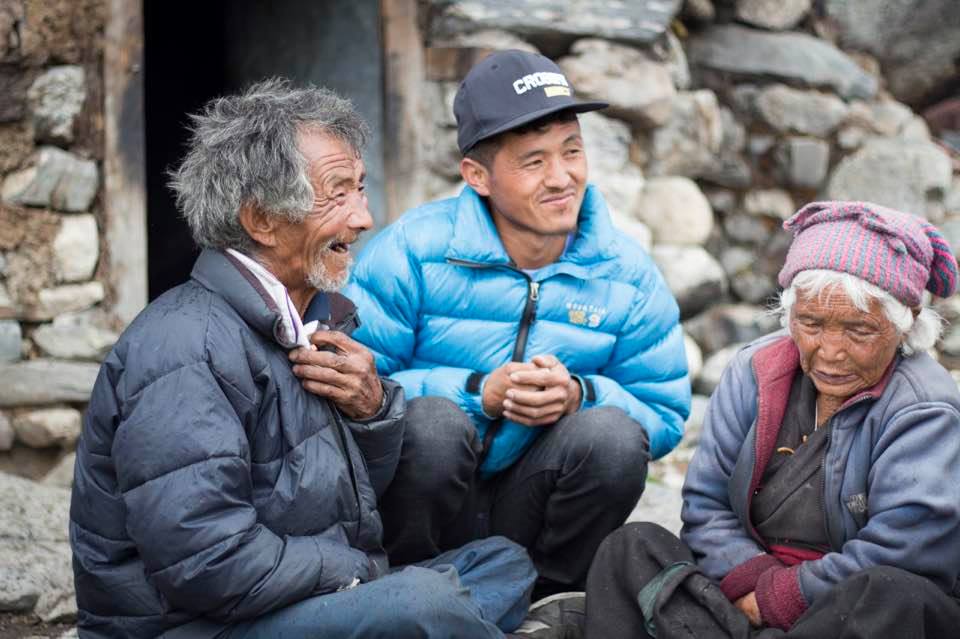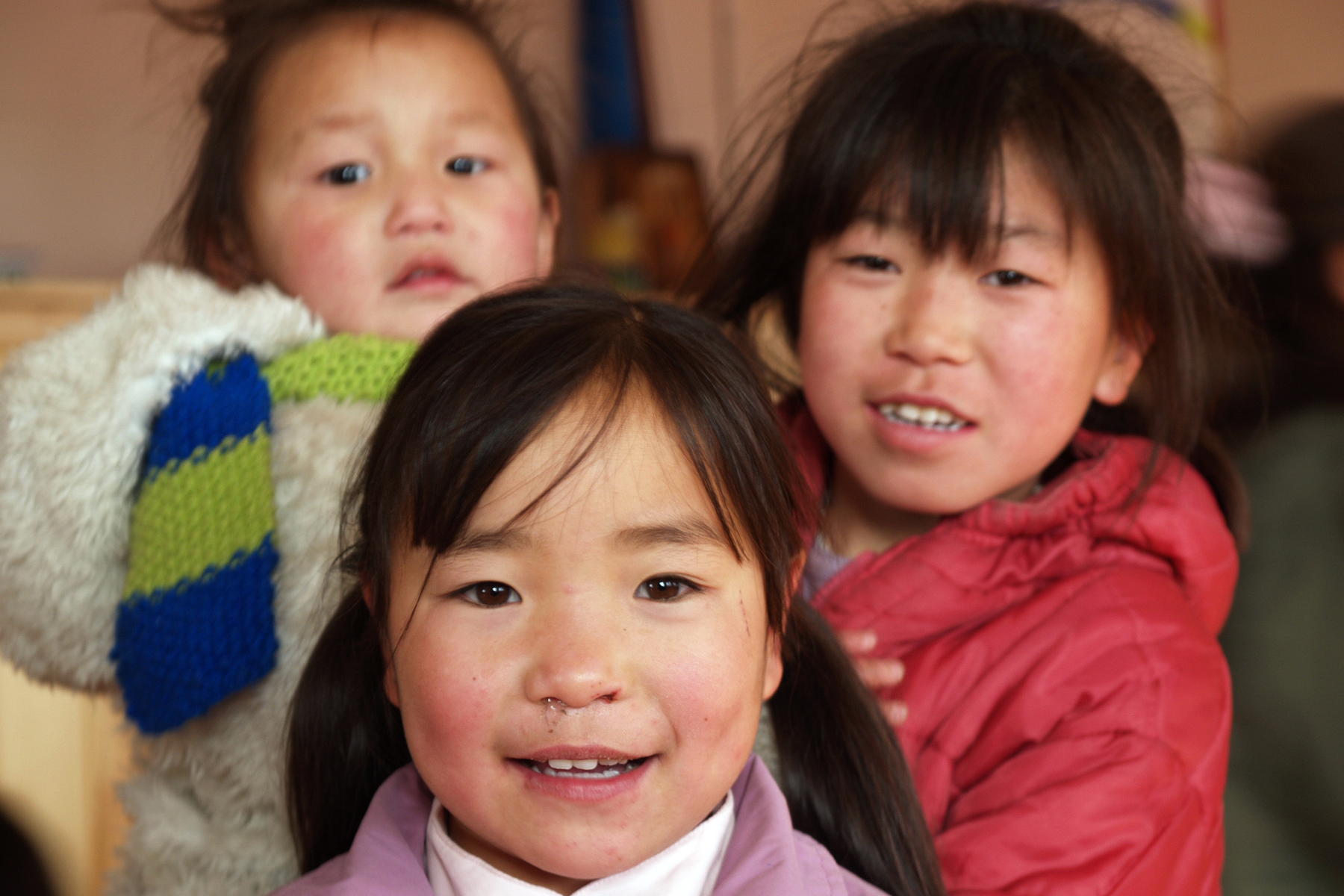FIRE – Flagstaff International Relief Effort, is a non-profit, non-government organization (NGO), headquartered in Flagstaff, Arizona with a registered NGO branch office in Ulaanbaatar, Mongolia, and team representatives in Langtang and Kathmandu, Nepal. FIRE began its work in 1999, in the devastated economy of post-Soviet Mongolia on the foundation of “placing aid directly in the hands of the people.” FIRE continually evolves, meeting the challenges of a rapidly changing world. Through sustainable and award-winning programming with a focus on research, development, and evaluation, FIRE empowers communities and individuals. Our responsible, multi-layered programs work with partners at all levels — local, national and international — including government, civil society, and individuals.
Mission
FIRE works to improve health, education and well-being through value centered, community-based programs encompassing cultural diversity and heritage.
Vision
Communities around the world are empowered with a higher quality of life through access to safe health care and sustainable resources for responsible development.
A key set of values is applied to every aspect of FIRE – from program design, implementation, and evaluation, to relationships with partners and co-workers. At the core is the ultimate value of Respect: for partners, those marginalized by society, the global community, underserved issues, stakeholders and local leadership.
RESPONSIBLE – Reliably meeting deadlines on-time, honoring commitments and expectations
EFFICIENT – Achieving maximum productivity without wasted effort or expense
SUSTAINABILITY – Ensuring our programs have a replicable design and local ownership for long-term impact
PARTNERSHIPS – Strategically building partnerships with national stakeholders and trustworthy organizations
EMPOWERING – Helping to build capacity and leadership in local communities
COMMUNICATION – Open, honest, timely, and culturally sensitive communication
TRANSPARENCY – Openly, clearly, and accurately sharing all information related to our operations and finances
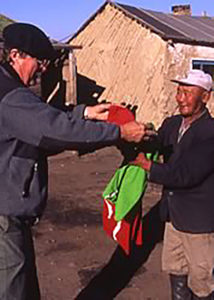 After the collapse of its Soviet-supported economy in 1990, Mongolia was economically devastated. In 1992, Flagstaff-based photojournalist, David Edwards, began photographing there. Edwards began hand-carrying duffel bags of donated winter clothing from Flagstaff, and personally placing this aid directly into the hands of those who needed it most, focusing primarily on orphanages and street children. In 1997 a group of Flagstaff residents founded the Mongolian Orphans Association shipping two 40-foot sea containers of aid and delivering it hand-to-hand throughout Mongolia in 1999 and 2000. The organization’s name was changed to FIRE – Flagstaff International Relief Effort. In 2003, Meredith Potts was hired as Executive Director. In 2005, medical mission trips were added in conjunction with the basic aid distribution trips, providing much-needed training and medical supplies.
After the collapse of its Soviet-supported economy in 1990, Mongolia was economically devastated. In 1992, Flagstaff-based photojournalist, David Edwards, began photographing there. Edwards began hand-carrying duffel bags of donated winter clothing from Flagstaff, and personally placing this aid directly into the hands of those who needed it most, focusing primarily on orphanages and street children. In 1997 a group of Flagstaff residents founded the Mongolian Orphans Association shipping two 40-foot sea containers of aid and delivering it hand-to-hand throughout Mongolia in 1999 and 2000. The organization’s name was changed to FIRE – Flagstaff International Relief Effort. In 2003, Meredith Potts was hired as Executive Director. In 2005, medical mission trips were added in conjunction with the basic aid distribution trips, providing much-needed training and medical supplies.
Between 1999 and 2009, FIRE reached 15 of Mongolia’s 21 provinces with ten 40-foot sea containers of supplies and aid. 46 American volunteers went door-to-door, guided by local social workers, seeking out the neediest families. 76 tons of aid was personally delivered to 65,000 individuals. 23 volunteer medical professionals provided $720,000 of medical supplies to 348 clinics and 1,200 hours of training to 2,100 Mongolian health care workers. 80 computers and 6,000 English books were also delivered to one dozen schools.
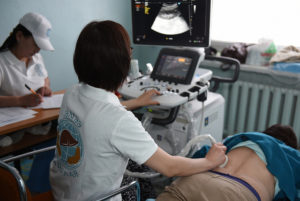
In 2009, FIRE shifted its focus to sustainable, long-term public health programs. FIRE began partnerships with the National Institutes of Health and Rotary International on hepatitis research and prevention. Since 2009, FIRE has provided 8,526 people in 7 provinces with comprehensive liver and cancer screenings; distributed 78,500 pieces of community awareness materials; vaccinated 3,022 people; trained 3,571 health care workers; distributed 155,000 sharps containers and $1,000,000 in medical supplies; distributed 2,000 health safety training videos; examined and educated 523 kindergartners about proper oral health.
FIRE expanded into Nepal following the 2015 earthquake by supporting the residents of the Langtang Valley with elder care, basic aid support, medical support, and heritage programs.
In 2016, FIRE was recognized by the World Health Organization and the European Association for the Study of the Liver as one of five “Innovative Hepatitis Screening Projects” in the world. In 2017 FIRE’s screening work was featured in The Economist Intelligence Unit as an example of best practices for HCV screening initiatives and FIRE’s Executive Director was also named one of 18 Hepatitis C Change Makers and one of 6 Hepatitis C Change Maker Honorees by The Economist Intelligence Unit. Change Makers were recognized as innovators doing exemplary work to inspire and guide their peers on the path to HCV elimination.
FIRE continues to design and implement programs that are culturally sensitive, focused on rural, underserved populations, that can be replicated in other countries and communities across the world
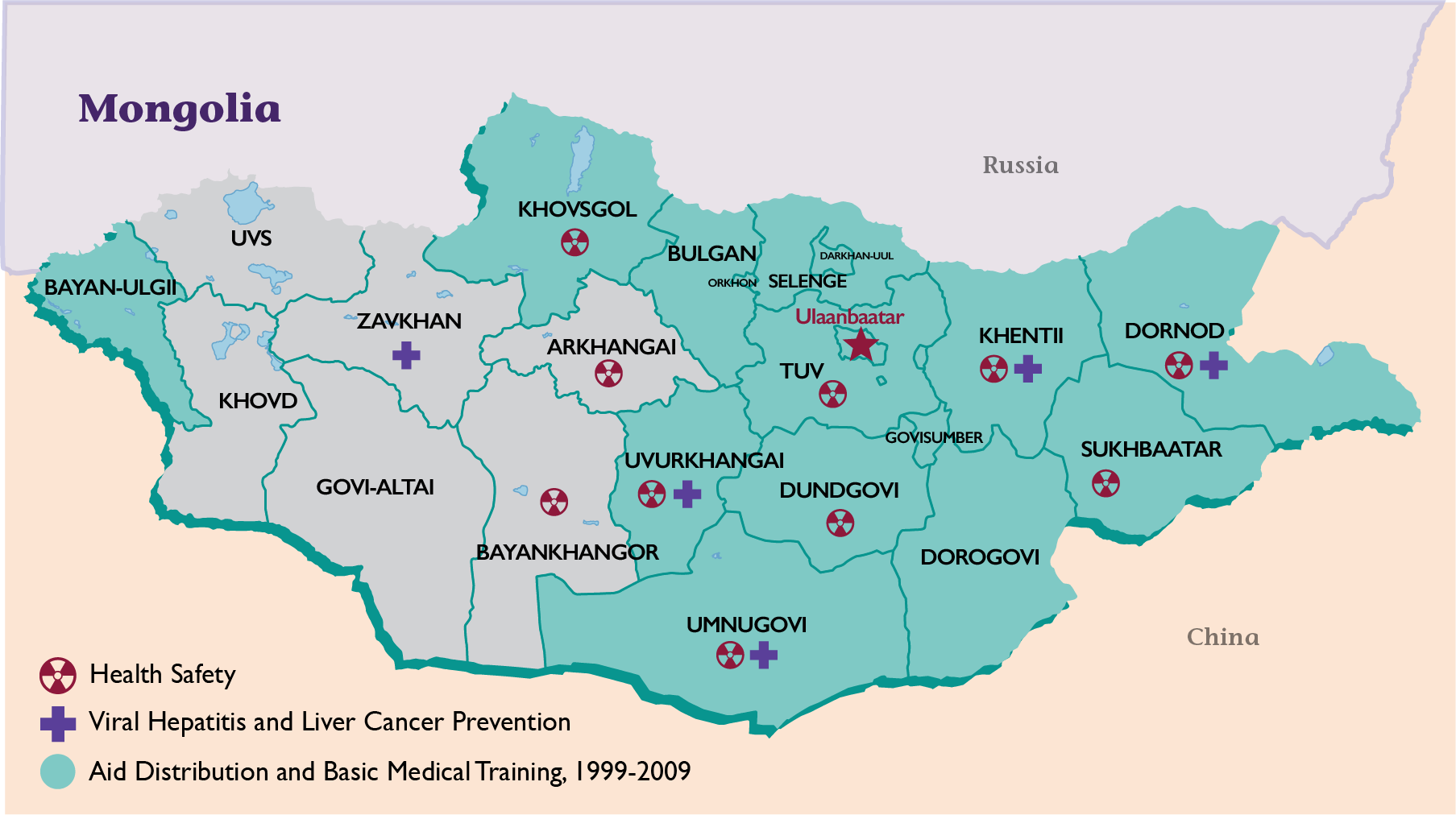
FIRE is committed to keeping administrative costs as low as possible. In 2019, 92% of all income went directly to program expenses. FIRE’s extensive accounting procedures in Mongolia, Nepal and the United States make sure that every penny is accounted for and tracked. This ensures that FIRE makes the most of every donated dollar, maximizing your support through efficient and responsible fiscal management.
You may visit Guidestar for additional information. For more information about FIRE’s values or Why to Choose FIRE, please read below.
Income and Expenses
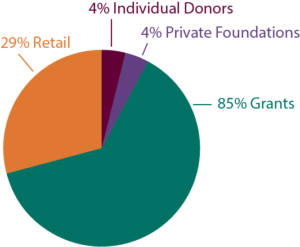
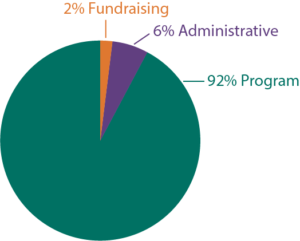
Relationships
Our working relationships with diverse people and organizations — from members of government to rural clinics — help leverage resources and support from every stakeholder level, ensuring the most empowering, sustainable, and cost-effective programs possible.
FIRE’s dedicated staff and advisors bring decades of collective experience with health and non-profit, non-government programs to our programs. At each stage of every program, FIRE communicates with stakeholders to ensure there is no contradiction between programs. FIRE’s team maintains close communication and adaptability for an ever-changing world and environment. Our exceptional understanding of both the urban and rural environments creates optimal fiscal efficiency and time management.
FIRE’s respect for local cultures, traditions, and leadership, create empowering and sustainable programs. At each step, FIRE works with local community members from the poorest members of the community to the provincial governor. The community determines their needs and issues. All of FIRE’s staff in Nepal and Mongolia are from the respective countries. In Mongolia, FIRE pointedly supports the infrastructure and administration of the public sector by focusing on state-run facilities and employees. By teaching, we empower individuals and communities with the knowledge to continue the work after FIRE’s project is completed.
Innovation
In 2016, FIRE’s “Hepatitis Free Mongolia” liver screening project was one of five international projects recognized as an “Innovative Hepatitis Screening Project” worldwide by the World Health Organization (WHO) and European Association for the Study of the Liver (EASL). FIRE’s innovative programs come from a comprehensive approach to designing multi-layered, strategic programs that address complex issues focused on remote and under-served populations. We are able to remain flexible and adaptable to the quickly changing local needs and logistics.
Integrity
FIRE was created on the foundation of integrity and direct intervention, as an alternative to the graft and loopholes commonly found in the complex environment of the developing world. From its beginning, FIRE adopted the mottos, “no middlemen” and “placing aid directly into the hands of the people.” FIRE’s values provide an ethical map for everything we do. They are the measuring stick against which all aspects of the organization are judged.

